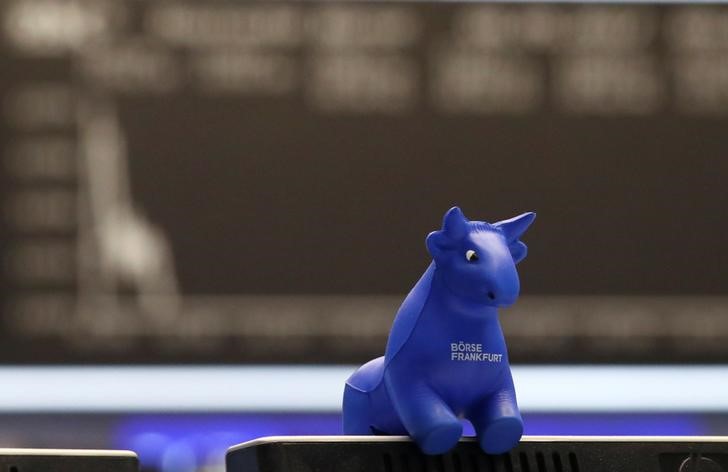Investing.com - European stock markets traded lower Wednesday, as weak German factory orders and rising oil prices added to global growth concerns.
At 03:35 ET (07:35 GMT), the DAX index in Germany traded 0.3% lower, the FTSE 100 in the U.K. fell 0.9% and the CAC 40 in France dropped 0.8%.
German factory orders slumped in July
Data released Wednesday showed that German factory orders fell 11.7% in July, slumping after the prior month’s revised 7.6% gain.
June’s hefty jump was helped by sharp gains in the aerospace sector, and excluding these large orders, overall monthly activity would have declined by 2.6%.
With July’s drop, the overall picture in the industrial sector of the largest economy in the eurozone remains very weak.
Manufacturing data from Germany, Britain and the euro area also showed declines on Tuesday, while their service sectors fell into contraction.
This added to a private-sector survey showing China's services activity expanded at the slowest pace in eight months in August.
Eurozone retail sales due
Turning to the eurozone as a whole, retail sales are expected to have weakened in July, showing that consumers in the region remain under pressure as inflation remains elevated.
Data due for release later in the session are expected to show that retail sales fell 0.1% on the month in July, a drop of 1.2% on an annual basis.
The European Central Bank meets next week, and a run of soft eurozone data has raised the likelihood that the bank’s officials will agree to a pause in the rate-hiking cycle.
Telefonica gains after Saudi stake move
In corporate news, Ashmore (LON:ASHM) stock fell 1% after the emerging markets-focused fund manager reported a 6% fall in annual profit, as assets under management slumped by almost a quarter.
On the flip side, Telefonica (BME:TEF) stock rose 2.5% after Saudi Arabia's STC Group amassed a 9.9% stake in the Spanish telecom giant, in a move to become its top shareholder.
Crude near 10-month highs after top producers extend output cuts
Adding to Europe’s potential problems was oil trading near 10-month highs after major producers Saudi Arabia and Russia unexpectedly extended their voluntary supply cuts to the end of the year.
The move surprised traders that had been looking for extensions only until the end of October, and global oil markets are now likely to tighten substantially this year.
A higher oil price brings with it a host of worries over inflation and the impact on central bank monetary policy, as well as what it means for a world struggling with weak demand and China's stuttering economy.
By 03:35 ET, the U.S. crude futures traded 0.4% lower at $86.31 a barrel, while the Brent contract dropped 0.5% to $89.62. Both contracts remain are close to their highest level since mid-November.
Additionally, gold futures fell 0.2% to $1,949.00/oz, while EUR/USD traded 0.2% higher at 1.0739.
